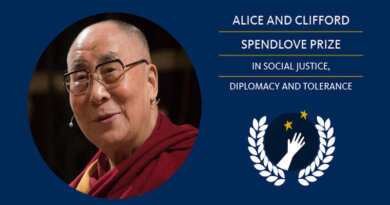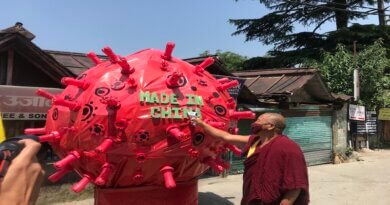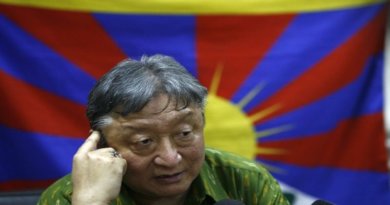China’s attempt to stop CTA President’s scheduled appearance at National Press Club of Australia fails

DHARAMSALA, 5 June: Declaring the President of the Central Tibetan Administration(CTA) a separatist, China has strongly objected to his scheduled appearance at the National Press Club later this month, but to no avail.
Stifling free speech in Australia, Officials from the Chinese embassy met with the press club’s chief executive, Maurice Reilly, in Canberra last week to express their “strong dissatisfaction and firm opposition to Australia”, The Sydney Morning Herald reported.
According to the report, the Chinese embassy argued in a letter handed to Reilly stating that “China expresses strong dissatisfaction and firm opposition to Australia, in disregard of China’s position and concern, allowing him to use the NPC platform to engage in separatist activities.”
The letter urged Australia “to see through the nature of the Dalai clique, respect China’s core interests and major concerns, and take concrete actions to remove the negative effects so as to prevent the disruption of the sound development of China-Australia relations and media co-operation.”
However, the US has declared in The Tibetan Policy and Support Act- a federal law that outlines United States policy on Tibet– that the CTA represents and reflects the aspirations of Tibetan people around the world among others.
While the letter further claimed that People of all ethnic groups in Tibet “endorse wholeheartedly the policies of China’s central government and the regional government, in reality, the US-based watchdog group Freedom House has declared Tibet as the joint least free country in the world for a second year in a row tied with Syria.
The Chinese embassy has further claimed that unbiased people acknowledge the human rights situation in Tibet “is at its best in history.”
The report noted that the press club’s chief executive has told the embassy officials the press club was “an institution for free speech, free media and public debate”.
Reilly has described his meeting with the Chinese as “cordial” but added that “they expressed the view quite strongly that Penpa Tsering speaking at the club was offensive to China’s interests as he represents a separatist movement and would the club review the invitation.”
“I also explained that speakers can put their views and that our media members can ask questions and challenge those views as they see fit.”
Australian Tibetan Kyinzom Dhongdue, an activist and former member of the Tibetan parliament-in-exile has described the development as “yet another case of the Chinese government’s bullying and its efforts to undermine Australian institutions and silence its critics.”
“There is no place for Chinese censorship and propaganda in Australia, especially at the National Press Club, a champion for media freedom and free speech.”
President Tsering is scheduled to address the press club on 20 June. His predecessor, Lobsang Sangay, appeared at the press club in August 2017.






